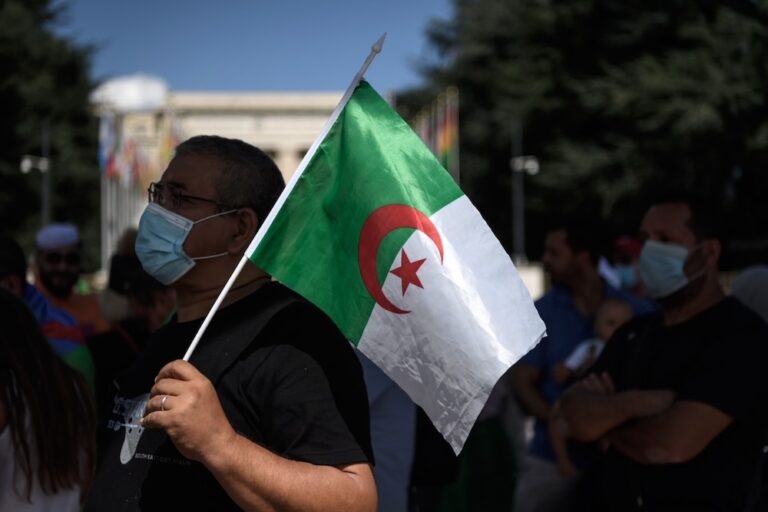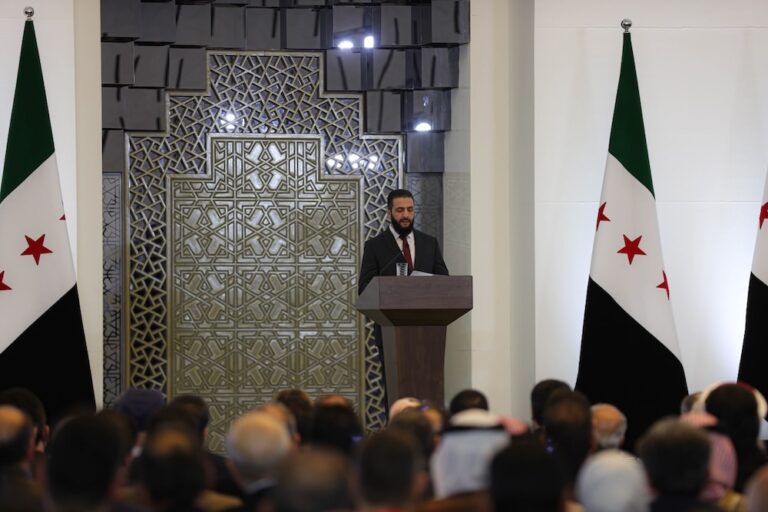In a joint submission to the UN Human Rights Council, 40 IFEX members protest resolutions on defamation of religion and the proposed elaboration of complementary standards to the International Convention on the Elimination of All Forms of Racial Discrimination.
(ARTICLE 19/IFEX) – In a joint submission to the UN Human Rights Council, 40 IFEX members protest resolutions on defamation of religion and the proposed elaboration of complementary standards to the International Convention on the Elimination of All Forms of Racial Discrimination (ICERD):
UPDATE:
Today, the UN Human Rights Council adopted a resolution on “combating defamation of religions”. Twenty states voted in favour, 17 states voted against and eight states abstained. In the run-up to the vote, many governments and non-governmental organisations – including the IFEX members who signed the statement below – campaigned against the resolution on the basis that it violates international human rights law on freedom of expression and other rights. While today’s vote is disappointing, the close vote indicates a significant decrease in the political support for such resolutions over previous years and raises the hope that in the future, a more constructive approach will emerge. The Human Rights Council is still considering a second resolution that could lead to the development of an enforceable international instrument banning “defamation of religions”. We urge the member states to reject such efforts.
The following states voted for the resolution: Bahrain, Bangladesh, Bolivia, Burkina Faso, China, Cuba, Djibouti, Egypt, Indonesia, Jordan, Kyrgyzstan, Nicaragua, Nigeria, Pakistan, Philippines, Qatar, Russian Federation, Saudi Arabia, Senegal and South Africa (20).
The following states voted against the resolution: Argentina, Belgium, Chile, France, Hungary, Italy, Mexico, Netherlands, Norway, Republic of Korea, Slovakia, Slovenia, Ukraine, United Kingdom, United States of America, Uruguay and Zambia (17).
The following states abstained in the vote: Bosnia and Herzegovina, Brazil, Cameroon, Ghana, India, Japan, Madagascar and Mauritius (8).
Angola and Gabon were absent at the vote.
JOINT STATEMENT:
UN Human Rights Council: 40 IFEX members reject “defamation of religions” resolutions
We, the undersigned 40 members of the International Freedom of Expression Exchange (IFEX) network, have been following with concern the current UN Human Rights Council debates on resolutions on combating defamation of religions and on the elaboration of complementary standards to the International Convention on the Elimination of All Forms of Racial Discrimination (ICERD).
In our collective opinion, any resolution on the concept of “combating defamation of religions” is fundamentally incompatible with the human right to freedom of expression, as protected by Article 19 of the International Covenant on Civil and Political Rights (ICCPR). It is also incompatible with Article 20 of the ICCPR, which only prohibits advocacy of national, racial or religious hatred that constitutes incitement to violence, discrimination and hatred.[1] Such a draft resolution, if adopted, would also be counterproductive to its apparent objectives of promoting equality and non-discrimination of individuals on the basis of their religion by endorsing state practices which discriminate against religious minorities, dissenting voices and non-believers.
We are also concerned about proposed resolutions on the elaboration of complementary standards to the ICERD which are intended to lead to the development of a new binding international agreement on “defamation of religions”. We believe this is unnecessary. Long established international human rights guarantees on freedom of expression and equality are adequate to deal with global challenges of violence, discrimination and hatred on racial and religious grounds. The extension of existing norms would do little to prevent these problems, while having a substantial impact on the freedom of expression and religion.
The issue of “defamation of religions” has polarised UN human rights debates about free expression, religion and the protection of minorities, and has had a broader negative impact on international cooperation on other human rights issues. Instead of continuing these unconstructive efforts, the UN Human Rights Council should encourage states to properly implement their existing international human rights obligations, including their positive obligations to respect, protect and fulfil the rights to freedom of expression and equality. The UN Human Rights Council should promote universal ratification of the ICCPR and the ICERD. States should strengthen domestic laws and policies to combat discrimination and promote intercultural and interreligious understanding.
Signed,
[1] http://www.article19.org/advocacy/campaigns/special-rapporteur.html



